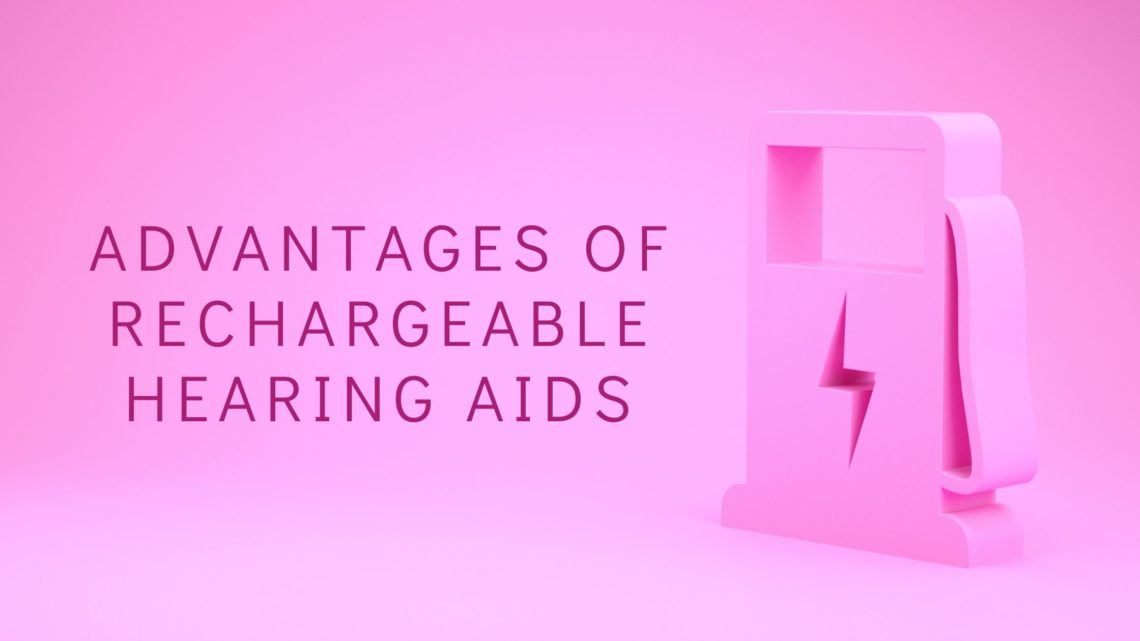Hearing aid batteries, just like hearing aids themselves, have undergone technical advances over the years.
The zinc-air battery has been the most common form of battery used in hearing aids for a long time. It gained popularity after mercury-based batteries were banned in 1996. This form of battery has the highest energy density while taking up the least amount of space. Since they can power something as complex as a hearing aid despite their small size, it’s easy to see why they’ve become so popular in the hearing world.
Zinc-air batteries have the disadvantage of being short-lived. A zinc-air battery will last anywhere from 3 to 14 days, depending on the size of the battery and the hearing aid features. Since they are disposable, they must be discarded until the charge has been depleted. As you would expect, this is not an optimal situation for either the consumer or the environment.
Rechargeables are on the rise
Hearing aid manufacturers haven’t exactly been sitting on their laurels. They’ve been trying for a long time to get rechargeable hearing aids into the mainstream. They have finally succeeded thanks to the recent invention of a smaller lithium-ion battery that can power hearing aids for up to 24 hours on a single charge.
This technology, which powers your smartphone, tablet, and cordless power tools, is now small enough to fit into your hearing aid. The use of lithium-ion batteries opens up a world of possibilities for hearing aid manufacturers and users. If you’re not sure if rechargeable hearing aids are right for you, consider the following advantages.
You can stream all you want on Bluetooth
Previous hearing aids performed better with regular disposable batteries because they had fewer features and needed less power to operate. This meant that a battery could last for around two weeks before needing to be replaced.
Hearing aids are now more battery-intensive than ever before, thanks to recent advancements in Bluetooth streaming and digital technologies. Using hearing aids means you no longer have to choose between streaming and maintaining your battery life. This trade-off has vanished with the introduction of lithium-ion rechargeable technology. You’ll be able to use your hearing aid as you wish without worrying about the battery running out during the day.
All expenses paid
Hearing aid batteries will cost certain hearing aid users about $150 a year if they use them often. On the flipside, Just one rechargeable battery is needed for 4-5 years of use with rechargeable hearing aids.
No need to replace batteries
If you use hearing aids often, you’ll understand how difficult it is to replace a battery every couple of days. To replace the batteries in your hearing aids, you must first open them and remove the old ones. For those with poor dexterity or vision, this may be a challenge. With rechargeable batteries, on the other hand, you just need to put your hearing aids in their charging case in the morning to have fully charged hearing aids.
More convenience
You’ll never be without electricity thanks to overnight charging. The charger would most likely be an induction charger, which means it will charge simply by connecting it to a power source. There will be no more visits to the store, no more opening bags of batteries, and no more batteries falling onto the ground to become hazards to your grandchildren or pets!
Better for the environment
Disposing of batteries wastes energy and contributes to emissions. Many of us throw away hundreds of items without even realizing it. Those are dumped in a landfill, where hazardous substances are released into the environment. There have been reports of fish poisoning in rivers and lakes resulting from improperly disposed batteries.
Recharging is a simple way for people to reduce their environmental effects. Only one battery is used for up to 5 years, resulting in a significant reduction in the number of batteries discarded.
Treating Hearing Loss
Our team will assist you in determining the best rechargeable battery model for your needs. Contact us right away if you’re ready to reap the benefits of rechargeable technology!

